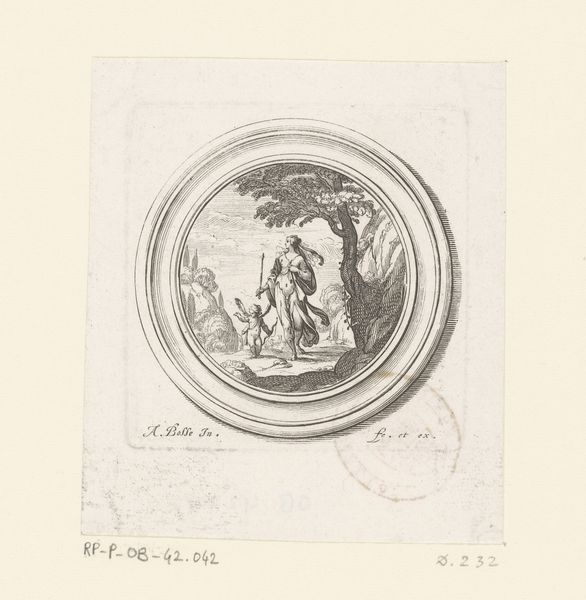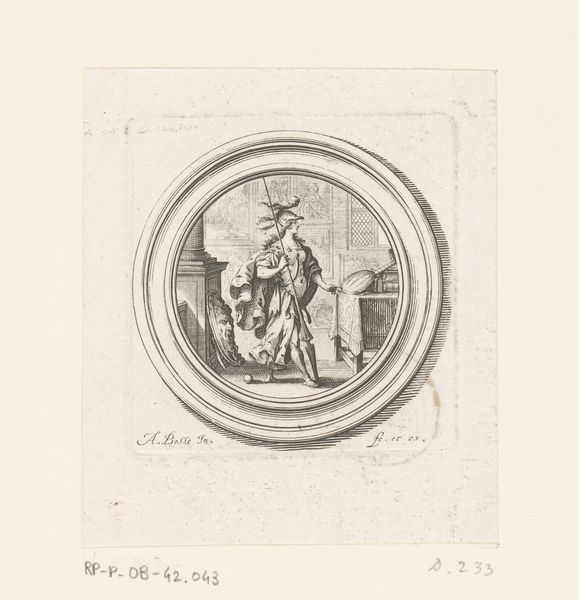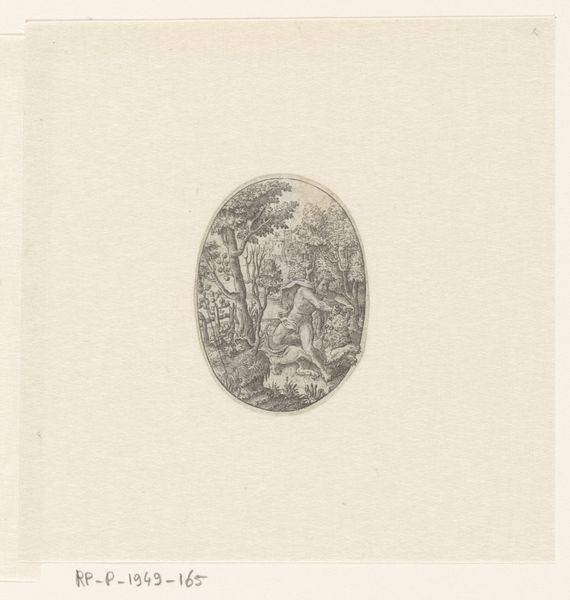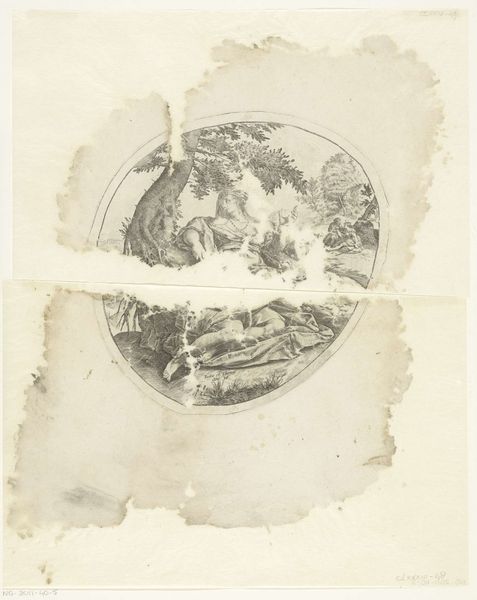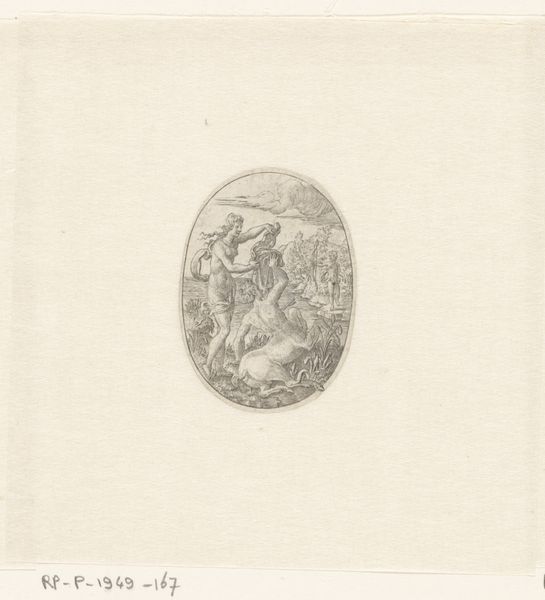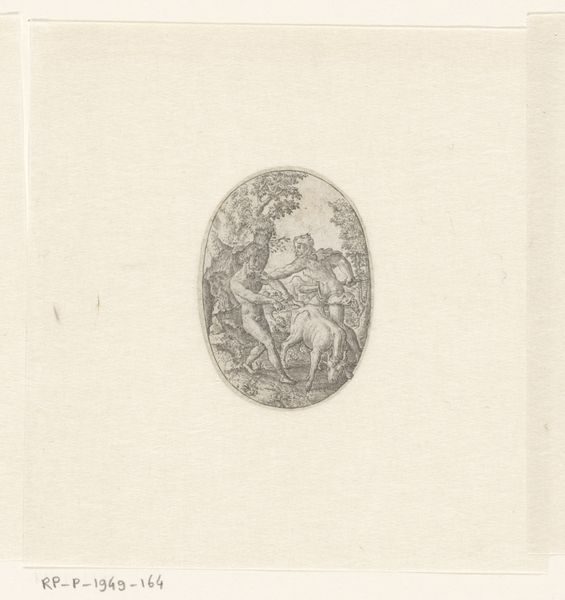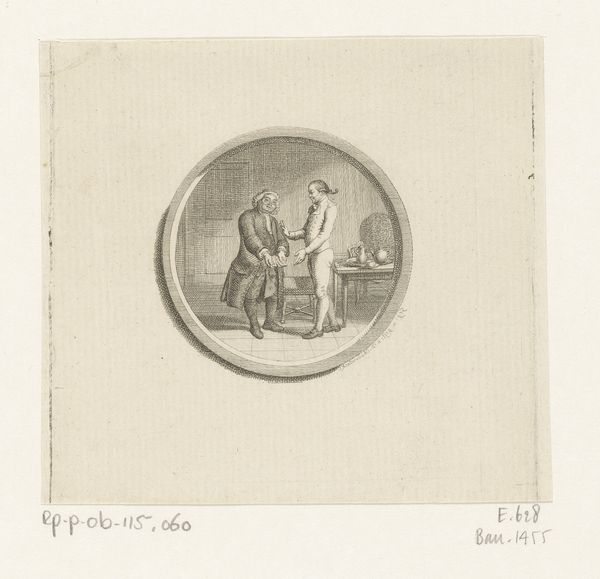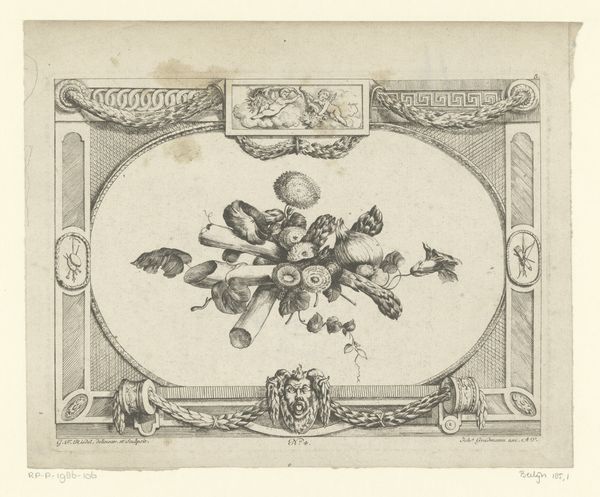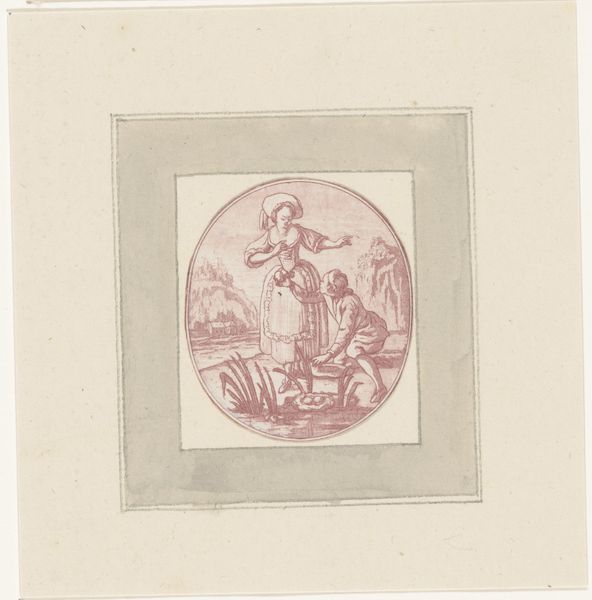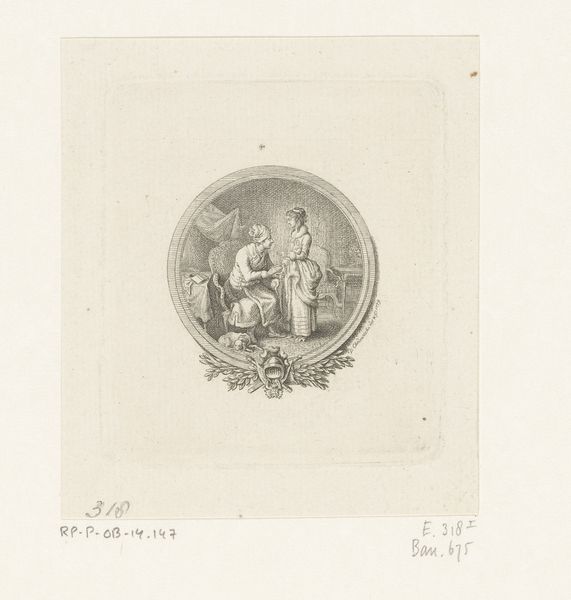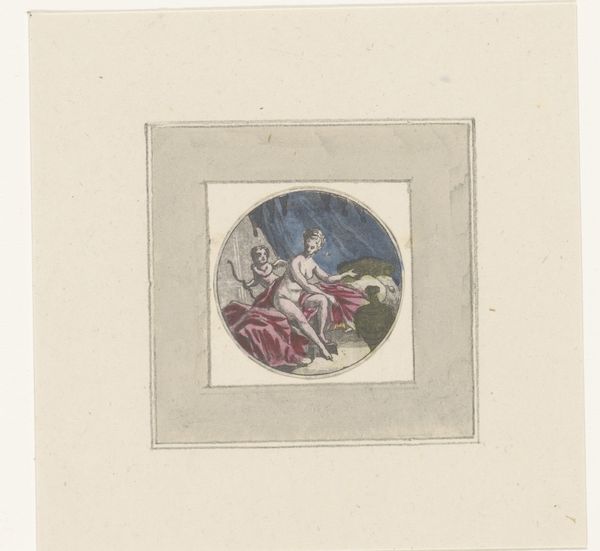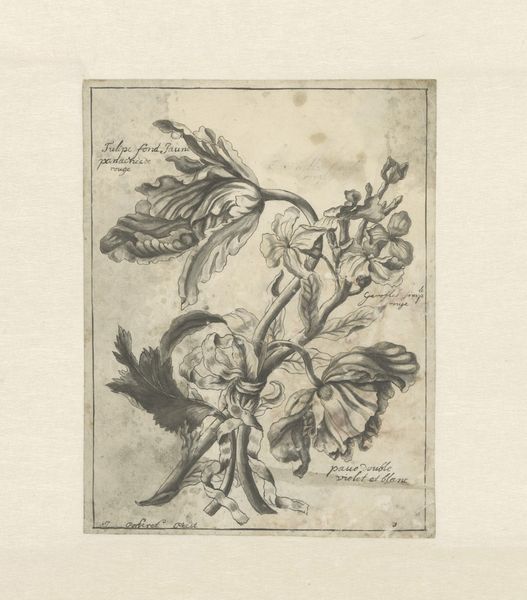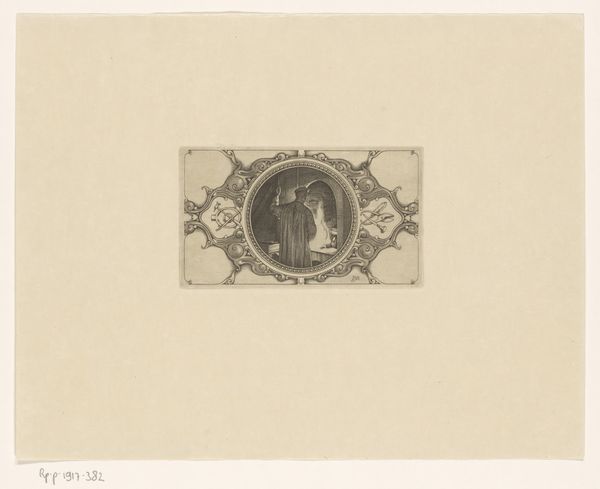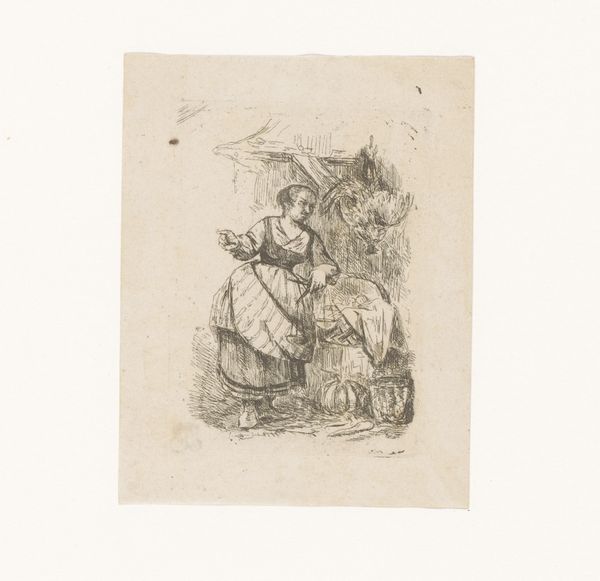
print, engraving
#
allegory
#
baroque
#
ink paper printed
# print
#
old engraving style
#
white palette
#
figuration
#
line
#
history-painting
#
engraving
Dimensions: height 71 mm, width 69 mm
Copyright: Rijks Museum: Open Domain
Abraham Bosse created this etching of Juno in her peacock-drawn chariot sometime between 1602 and 1676. Bosse lived in a time of immense social and political change in France. He was a deeply religious man, and his conversion to Calvinism reflects the religious tensions of the era. Bosse has framed Juno, the Roman goddess of marriage and queen of the gods, in a circular window. Juno was often portrayed as the ideal of femininity and domesticity, yet her own marriage to Jupiter was famously tumultuous. Here, she is carried in a shell-shaped carriage by peacocks, symbols of beauty and immortality. The city below suggests Juno’s protective role, but it also raises questions about power, especially female power, and its responsibilities. As we reflect on this image, consider how Juno's story resonates with the complexities of womanhood – the burdens of beauty, the challenges of marriage, and the weight of expectations, both divine and earthly.
Comments
No comments
Be the first to comment and join the conversation on the ultimate creative platform.
